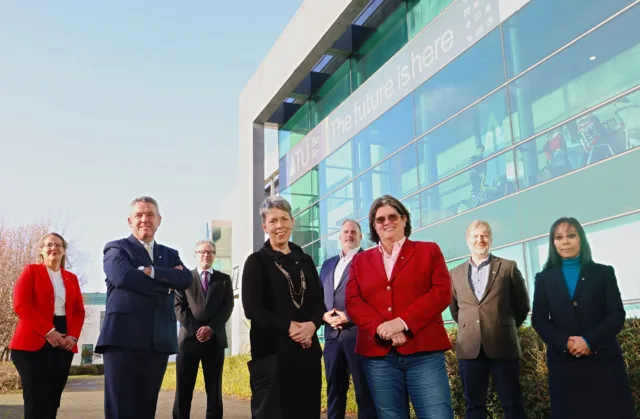Think you can spot a liar? New research says you’re probably wrong
New study reveals that how we act matters more than what we say when it comes to being believed.

A new study led by Dr Erik Mac Giolla, a lecturer in Psychology at Atlantic Technological University (ATU), provides one of the strongest tests to date of the influential self-presentational theory of deception- a theory suggesting people are less predictable than previously assumed when they lie or tell the truth.
The research, published in May 2025 in the Journal of Nonverbal Behaviour, is titled: “Acting like a liar: An experimental test of the self-presentational theory of deception.”
The study puts to test the self-presentational theory’s argument that we are all skilled social actors who adapt our behaviour to fit the situation. Unlike traditional theories that assume liars give off tell-tale signs of anxiety or cognitive strain, this theory suggests deception cues are weak because everyone is constantly managing impressions, whether lying or telling the truth.

To put this to the test, 12 participants recorded four video statements describing outings- two truthful and two fabricated. Each statement was delivered while acting like a truth-teller or acting like a liar. More than 200 observers were then asked to judge whether each statement was true or false.
“By asking people to intentionally act like a liar, we separated the truth of their words from their ability to self-present,” explains Dr Mac Giolla.
The results were striking. When participants acted honestly, they were judged truthful 61% of the time, regardless of whether they were lying or telling the truth. When they acted deceptively, they were judged truthful only 39% of the time.
Actual truthfulness barely mattered: true statements were judged truthful 52% of the time, false statements 48%- close to random guessing.
“Our findings suggest that people are competent social actors, capable of providing believable stories with little preparation. It’s an old adage in deception research, but you’re probably better at lying than you think, and worse at spotting liars than you think”, says Dr Mac Giolla.
The study also revealed striking individual differences: some people were eight times more likely to be judged honest when acting like a truth-teller compared to acting like a liar, regardless of whether they were actually lying or telling the truth.
“We can probably all think of examples like this from our own lives. Friends or family members who are better or worse at lying. Our findings provide strong support for these individual differences” says Dr Mac Giolla.
These findings challenge public perceptions about lie detection and have implications for law enforcement, HR, and politics. They also raise questions about whether self-presentation skills can be trained, and what that means for professions where credibility is key.
“Being believable isn’t just about telling the truth, it’s about how convincingly you act,” concluded Dr Mac Giolla, hoping the research will inspire others to test the core assumptions of deception theories rather than take them for granted.
Photo captions: Generic photo of ATU students/ Dr Erik Mac Giolla, a lecturer in Psychology at Atlantic Technological University (ATU).
This press release is part of Bright Minds, Big Impact, a series highlighting ATU’s research excellence and the people driving meaningful change.
Ivana Hanjs
Communications Officer
Tel: +353 89 963 9559
E: ivana.hanjs@atu.ie




